- October 2025 (2)
- September 2025 (1)
- August 2025 (1)
- July 2025 (4)
- June 2025 (1)
- August 2024 (1)
- July 2024 (1)
- May 2024 (1)
- March 2024 (1)
- February 2024 (1)
- January 2024 (2)
- December 2023 (2)
- November 2023 (1)
- October 2023 (2)
- August 2023 (1)
- May 2023 (1)
- February 2023 (1)
- January 2023 (2)
- October 2022 (1)
- September 2022 (2)
- June 2022 (3)
- May 2022 (1)
- March 2022 (1)
- December 2021 (1)
- October 2021 (1)
- September 2021 (2)
- July 2021 (1)
- June 2021 (5)
- March 2021 (1)
- January 2021 (1)
- December 2020 (1)
- October 2020 (2)
- July 2020 (1)
- June 2020 (2)
- April 2020 (2)
- March 2020 (2)
- January 2020 (1)
- December 2019 (1)
- November 2019 (1)
- October 2019 (1)
- September 2019 (2)
- August 2019 (1)
- July 2019 (1)
- June 2019 (2)
- May 2019 (1)
- April 2019 (2)
- March 2019 (1)
- December 2018 (1)
- November 2018 (1)
- October 2018 (3)
- September 2018 (1)
- July 2018 (2)
- June 2018 (1)
- May 2018 (3)
- April 2018 (3)
- February 2018 (1)
- November 2017 (3)
- October 2017 (1)
- May 2017 (3)
- April 2017 (3)
- March 2017 (1)
- February 2017 (1)
- January 2017 (1)
- September 2016 (2)
- August 2016 (1)
- June 2016 (2)
- May 2016 (2)
- April 2016 (2)
- March 2016 (2)
- February 2016 (2)
- January 2016 (1)
- September 2015 (2)
- August 2015 (1)
- May 2015 (2)
- December 2014 (3)
- October 2014 (1)
- July 2013 (1)
START Center
START KICKS OFF ACADEMIC YEAR WITH 13TH ANNUAL 2-DAY RETREAT
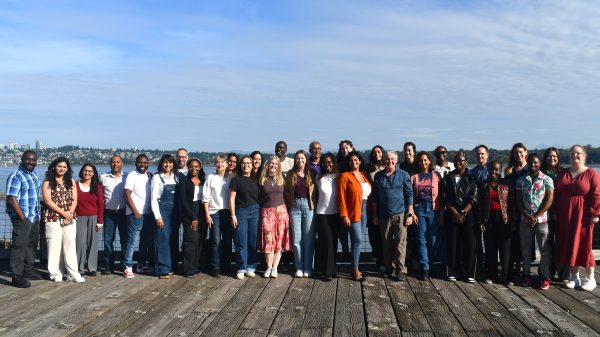
START held its 13th annual retreat on September 20 – 21, 2025 at Semiahmoo Resort in Blaine, WA. This two-day retreat is an opportunity for the Center to come together and re-establish our values, have dedicated time toward team-building, go over specific resources and skills that lead to success in START work, and to welcome the new START Research Assistants (RAs) and Global Innovation Fellow (GIF) joining the center for the 2025 – 2026 academic year.
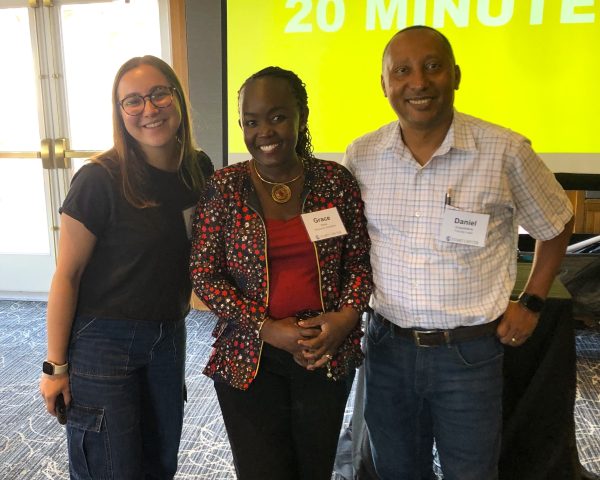 To set the tone for the retreat, we began with a quick message from START leadership welcoming everyone, stating our retreat goals and behavioral norms, and reviewing our four START Core Values. These values remain the same from year to year, but are shaped each year by the group of people that make up START.
To set the tone for the retreat, we began with a quick message from START leadership welcoming everyone, stating our retreat goals and behavioral norms, and reviewing our four START Core Values. These values remain the same from year to year, but are shaped each year by the group of people that make up START.
Our next session of the day focused on individual work styles, and how we work together as teams effectively. This consisted of discussing introversion versus extroversion, and seeing where each of the members of the Center land on this scale. We then looked at four different workstyles. Each member of the team took a survey before the retreat, and we discussed each other’s results and what behavior trends in group work individuals typically have based on their results. We then had a team building activity, where the group was split into five teams. Each team was given a bag of crafting supplies, and tasked with creating a bridge that could hold more weight than the other teams. We asked teams to be aware of what roles each person naturally took within the group, and if they noticed trends in their work style.
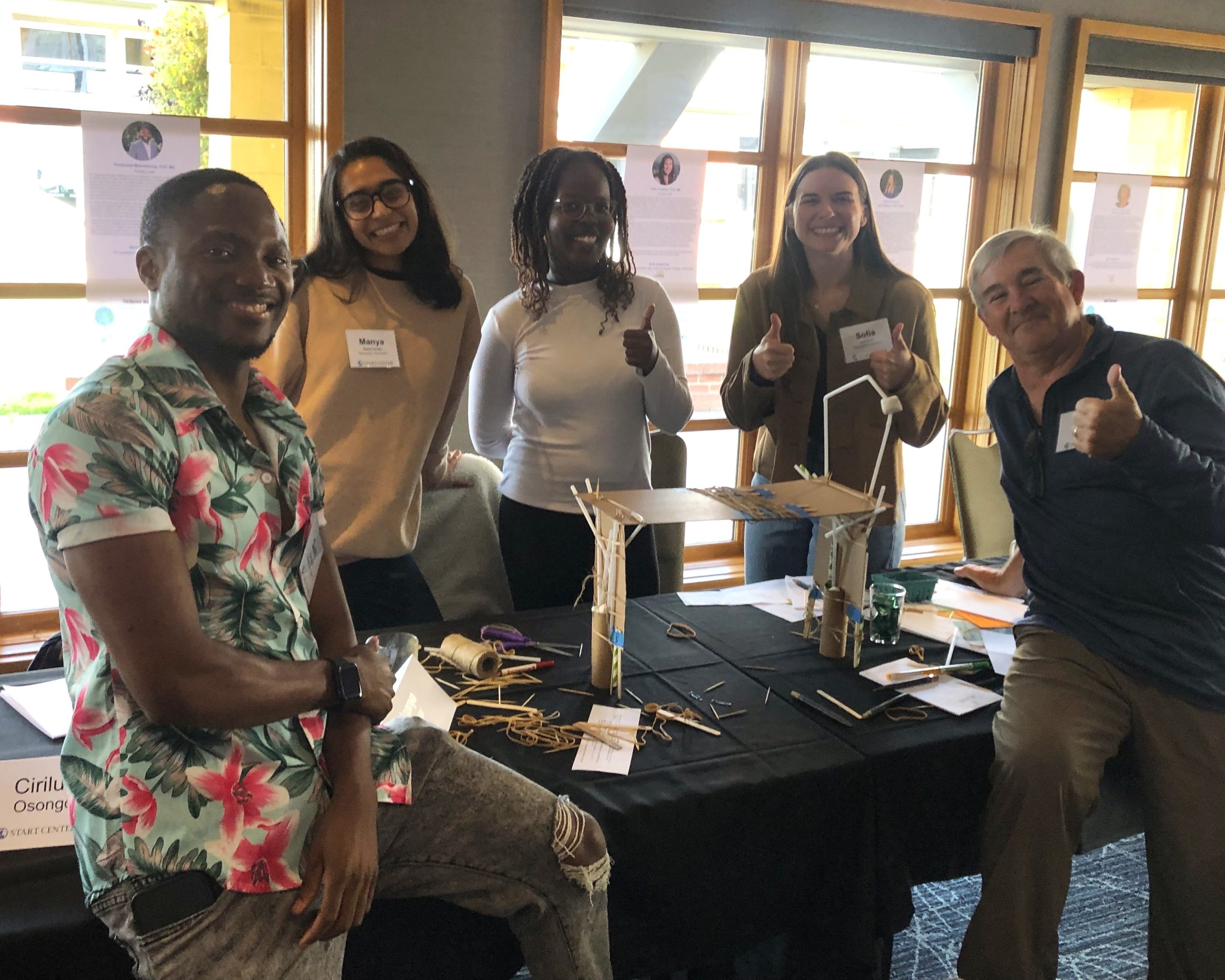 The next session was led by START faculty lead Dr. Akhtar Badshah, where he walked the Center through his Purpose Mindset framework and practice. This consisted of identifying personal motivators, strengths, and values. This helped individuals recognize how they and their teammates show up to work, how they work best, and what folks are learning to balance. People were split into small groups to create team purpose statements incorporating each individuals strengths and values.
The next session was led by START faculty lead Dr. Akhtar Badshah, where he walked the Center through his Purpose Mindset framework and practice. This consisted of identifying personal motivators, strengths, and values. This helped individuals recognize how they and their teammates show up to work, how they work best, and what folks are learning to balance. People were split into small groups to create team purpose statements incorporating each individuals strengths and values.
The final session of the first day focused on the pivotal point of every project when it launches from a work order given to START by a client to tangible work to be done by our RAs: the scoping meeting. This is a meeting where the team of RAs and a faculty lead 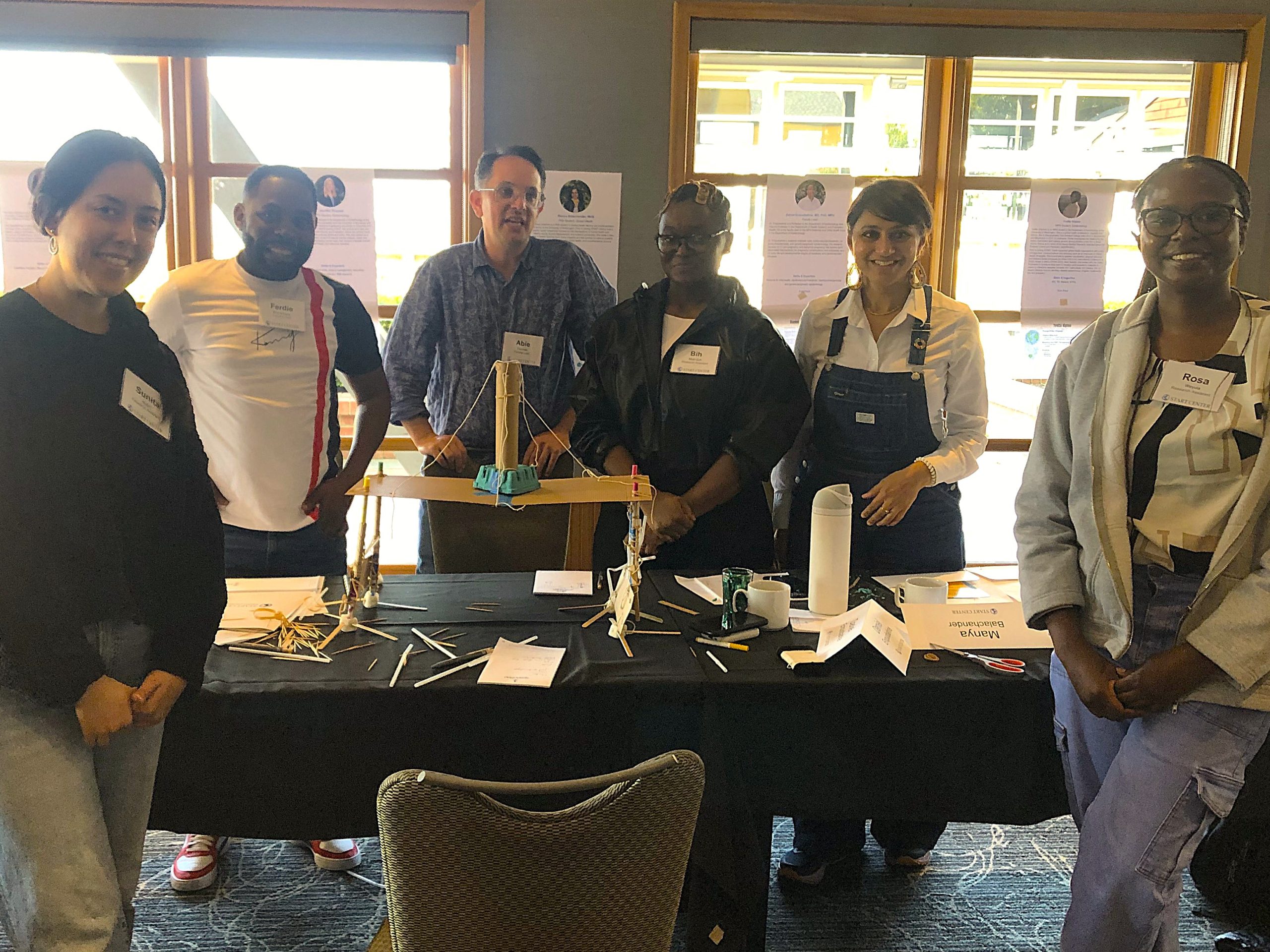 meet with the client to discuss the purpose and methods stated in the work order, gain clarity on the project scope and final deliverables, and to ask any closing logistical questions. RAs were given roles to act out, with instructions to act out typical missteps and successful habits as a PM, teammate, and faculty lead. The group then discussed which behaviors that had been modeled to repeat and which to avoid.
meet with the client to discuss the purpose and methods stated in the work order, gain clarity on the project scope and final deliverables, and to ask any closing logistical questions. RAs were given roles to act out, with instructions to act out typical missteps and successful habits as a PM, teammate, and faculty lead. The group then discussed which behaviors that had been modeled to repeat and which to avoid.
The second day began with a morning of focused sessions catered to where Center members are in their START career. The new RAs participated in a deep drive into the START project life cycle. This examined the framework of a typical project process, what has happened with past projects, what the common steps to success look like, and what the common pitfalls to avoid are. This session was led by two second year RAs who have both held the role of Project Manager on projects, and a START faculty lead, all of whom could speak to specific examples they have experienced in their work with START. Rising 2nd year RAs and faculty leads participated in a session on project management. This session focused on best practices for managing a project at START, and how RAs can better support each other as peers. We also discussed ways RAs can meet their goals and grow in the ways they want to within their project work.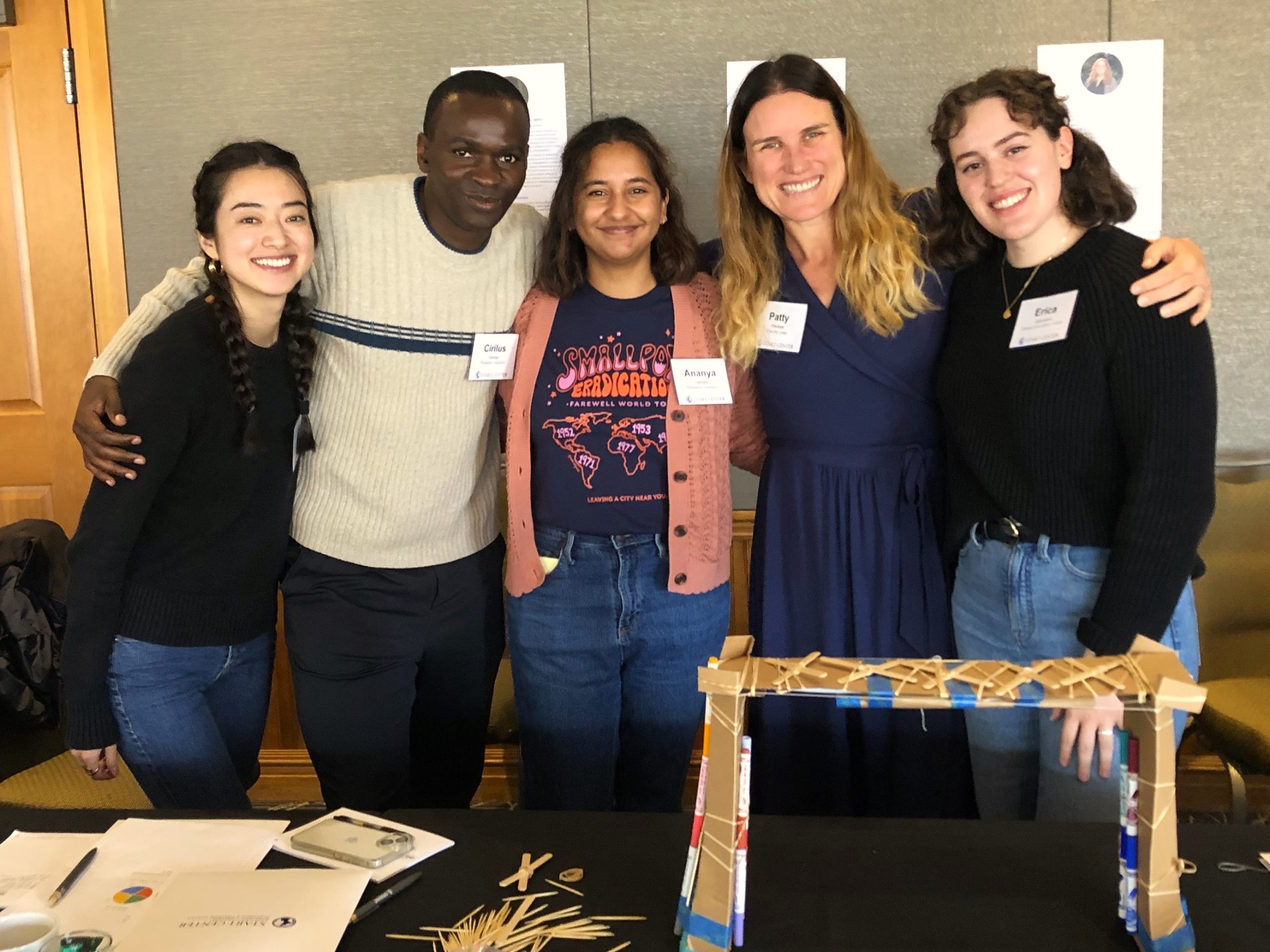
Our next concurrent sessions included an RA only session where RAs could ask candid questions of their peers and provide insights without the pressure of having faculty and staff present. Faculty met at the same time to share best practices, common project challenges, and set goals for learning and mentorship at then Center for the year.
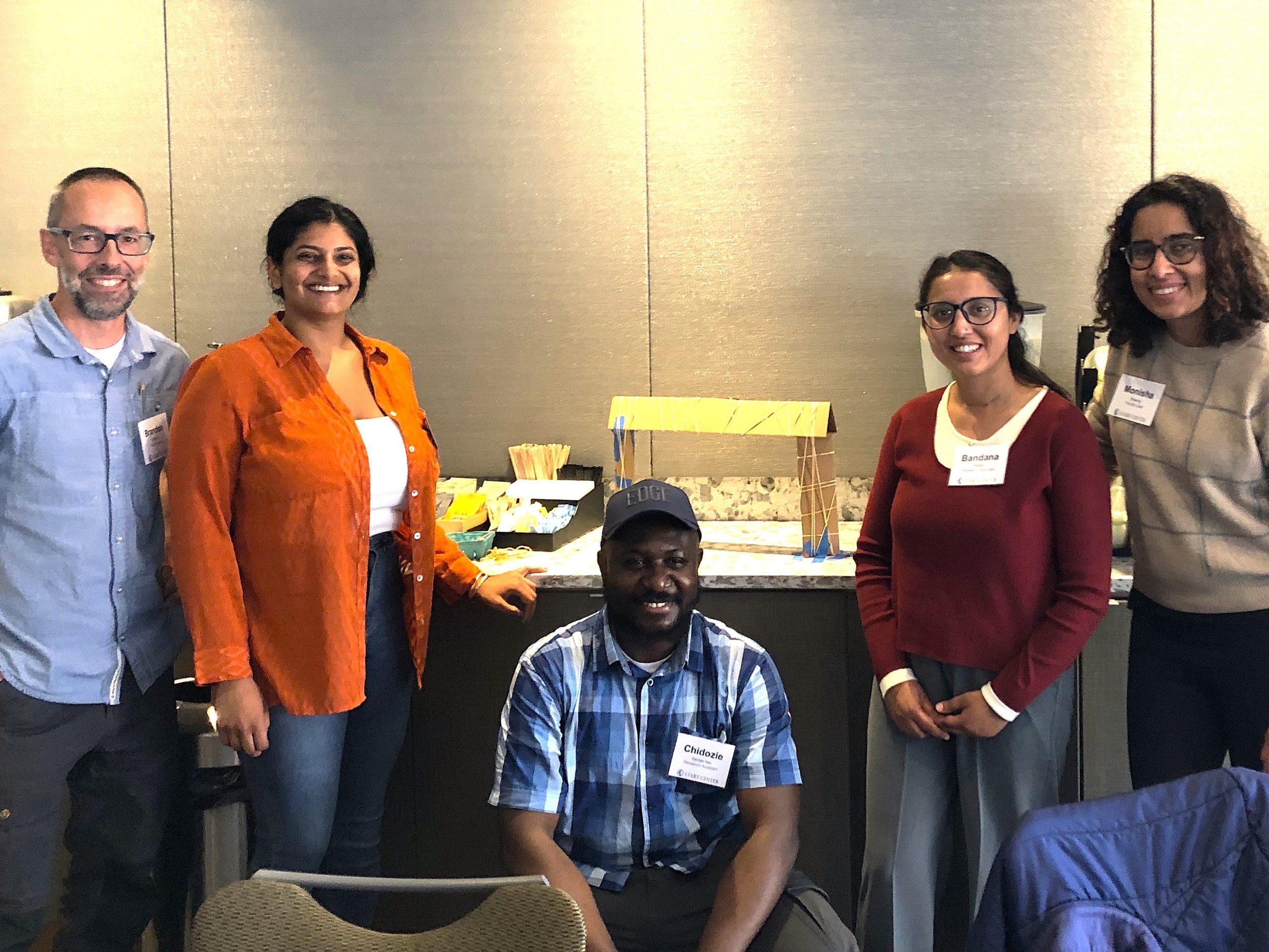 The final session of the day focused on setting the tone for our community for the year. START Student Representatives, who are second year research assistants elected by their peers to represent the RAs to leadership, led this session. They first presented on how they wanted to work with the Center this year, and emphasized that we are a community at this learning Center. They then led the entire Center in a game that highlighted similarities between each other.
The final session of the day focused on setting the tone for our community for the year. START Student Representatives, who are second year research assistants elected by their peers to represent the RAs to leadership, led this session. They first presented on how they wanted to work with the Center this year, and emphasized that we are a community at this learning Center. They then led the entire Center in a game that highlighted similarities between each other.
The START Leadership team closed the programming by summarizing major themes from the retreat, and emphasized that we are a community at this learning Center. We expect people to be challenged because that is how we grow, and we are here to support people when they need it.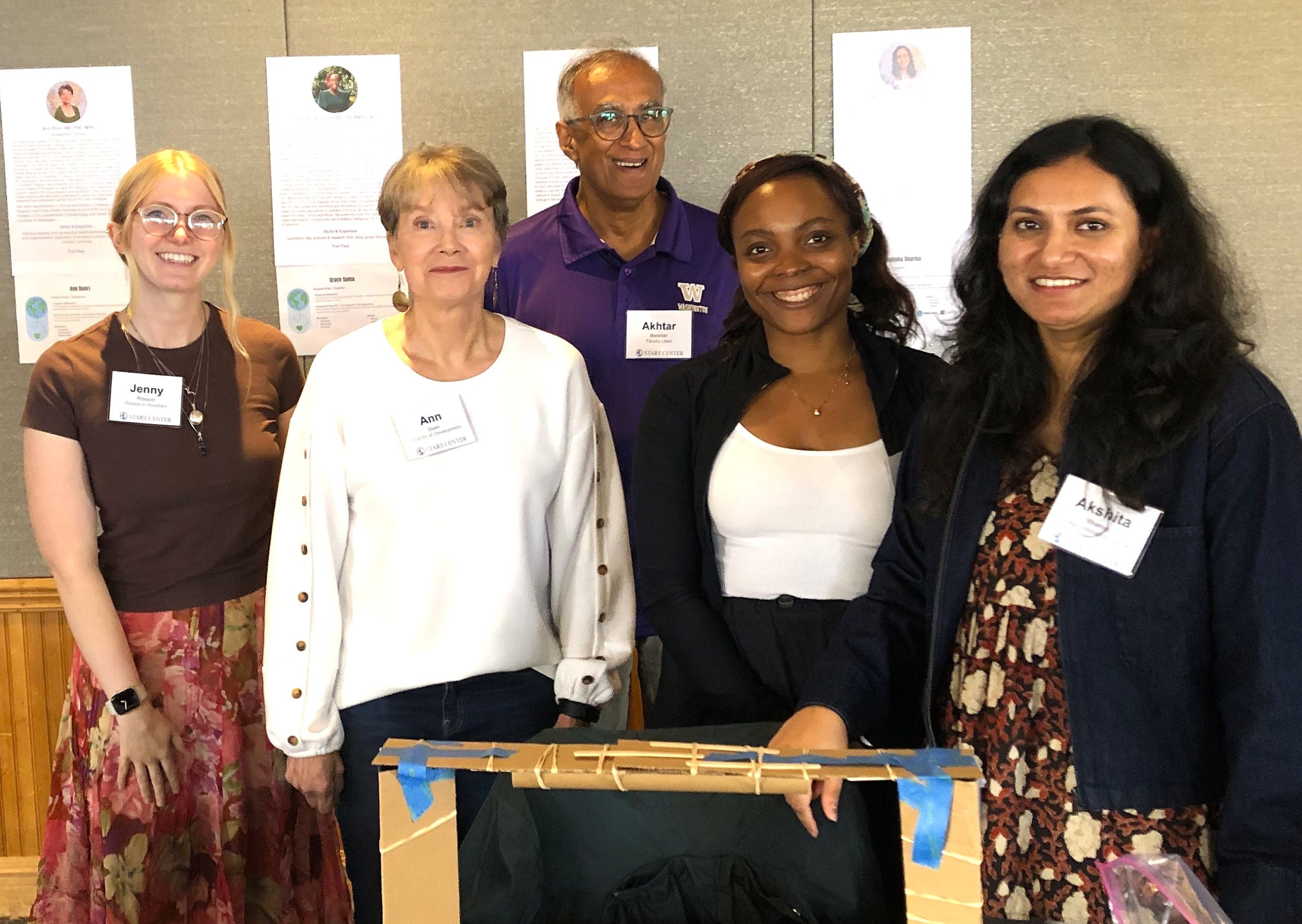
The trainings provided at the 13th annual retreat were created to allow research assistants, faculty, and staff working at START to share a common understanding of expectations and methods used to deliver high-quality research. The opportunity for the START Center to come together in-person for two days set a positive tone for the 2025 – 2026 academic year.
Did you enjoy this aricle? Share it Facebook Google+ LinkedIn Twitter